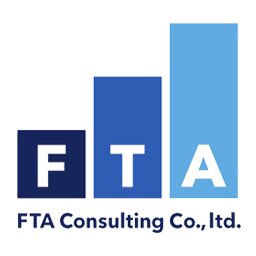Best Accounting & Auditing Lawyers in Chatuchak
Share your needs with us, get contacted by law firms.
Free. Takes 2 min.
List of the best lawyers in Chatuchak, Thailand
About Accounting & Auditing Law in Chatuchak, Thailand
Accounting and auditing play a crucial role in the business and financial sectors of Chatuchak, an important district in Bangkok, Thailand. All companies, regardless of size, are legally required to maintain accurate financial records and submit them in accordance with the country’s accounting standards and laws. Proper accounting and auditing practices ensure transparency, prevent fraud, and promote business confidence among stakeholders. In Chatuchak, local and multinational companies must comply with the Accounting Act, Thai Financial Reporting Standards, and the regulations set out by the Department of Business Development and the Revenue Department.
Why You May Need a Lawyer
Legal support in accounting and auditing is more common than many people think. Here are some situations where seeking professional legal advice or representation might be necessary:
- Facing an audit by the Thai Revenue Department or Department of Business Development
- Encountering discrepancies or irregularities in financial statements
- Setting up a business and needing guidance on accounting compliance
- Handling disputes involving taxes, VAT, or financial reporting
- Dealing with suspected fraud, embezzlement, or mismanagement of company assets
- Responding to DBD or Revenue Department requests or penalties
- Needing assistance with annual filings or statutory audits
- Operating as a foreign-owned business and requiring clarity on local accounting law
Local Laws Overview
Accounting and auditing in Chatuchak, Thailand, are governed by several key sets of laws and standards. The main laws include the Accounting Act B.E. 2543 (2000), the Civil and Commercial Code, the Revenue Code, and the Thai Financial Reporting Standards (TFRS). These laws specify requirements for bookkeeping, reporting, document retention, and audit processes.
Some important points to remember:
- Businesses must prepare and keep financial statements in accordance with Thai statutory requirements
- Registered companies need to have their financial statements audited by a licensed Thai auditor every year
- All accounting records must be kept in the Thai language or accompanied by a Thai translation
- Tax filings must be accurate, and supporting documents must be retained for five to seven years
- Penalties and criminal liability may apply for non-compliance or submission of false statements
The authorities responsible for enforcement include the Department of Business Development, the Revenue Department, and in certain cases, the Securities and Exchange Commission for public companies.
Frequently Asked Questions
What type of businesses must keep accounting records in Thailand?
All registered businesses, including companies, partnerships, and specific foreign branches, are required to maintain proper accounting records under the Accounting Act.
Are there specific auditing requirements in Chatuchak?
Yes, all companies in Chatuchak must have annual financial statements audited by a licensed auditor certified by the Thai authorities.
What are the penalties for failing to comply with accounting laws?
Penalties range from monetary fines to imprisonment, depending on the severity of the offense and type of violation.
Can the authorities audit any business at any time?
The authorities, such as the Revenue Department, can request audits or investigative reviews at their discretion, particularly if irregularities are suspected.
What accounting standards must companies in Chatuchak use?
Companies must comply with Thai Financial Reporting Standards or the TFRS for SMEs, depending on the size and nature of the business.
Are records allowed to be kept in English?
Records must be maintained in Thai. If kept in another language, Thai translations must be provided.
How long do I need to retain accounting documents?
Businesses are required to retain their accounting documentation for a minimum of five years, and sometimes up to seven years for tax purposes.
How often should companies file financial statements?
Companies are required to prepare and file annual financial statements with the Department of Business Development and submit related tax filings regularly.
What steps should be taken if a financial discrepancy is discovered?
If a discrepancy is found, it should be reported to company management immediately, investigated, and legal or professional advice should be sought to ensure compliance and rectify the issue.
Do foreign-owned companies have different accounting obligations?
Foreign-owned companies, like local ones, must comply with Thai accounting and audit regulations. Some additional requirements may apply, such as stricter reporting or filings.
Additional Resources
If you need more information on accounting and auditing compliance in Chatuchak, the following organizations and governmental bodies can assist:
- Department of Business Development (DBD)
- Revenue Department of Thailand
- Federation of Accounting Professions (FAP)
- Securities and Exchange Commission (SEC) for listed companies
- Thai Chamber of Commerce
- Professional legal and accounting firms in Bangkok
Next Steps
If you require legal assistance in accounting or auditing in Chatuchak, consider these steps:
- Gather all your existing accounting and financial records
- List specific questions or concerns regarding your situation
- Seek a consultation with a qualified accounting and legal professional familiar with the local requirements in Chatuchak
- Prepare to discuss your business operations transparently
- Follow your advisor's recommendations regarding compliance, documentation corrections, or responding to official inquiries
Taking prompt action is essential. Ensuring your finances and filings are legally compliant helps avoid penalties and supports the success and reputation of your business in Thailand.
Lawzana helps you find the best lawyers and law firms in Chatuchak through a curated and pre-screened list of qualified legal professionals. Our platform offers rankings and detailed profiles of attorneys and law firms, allowing you to compare based on practice areas, including Accounting & Auditing, experience, and client feedback.
Each profile includes a description of the firm's areas of practice, client reviews, team members and partners, year of establishment, spoken languages, office locations, contact information, social media presence, and any published articles or resources. Most firms on our platform speak English and are experienced in both local and international legal matters.
Get a quote from top-rated law firms in Chatuchak, Thailand — quickly, securely, and without unnecessary hassle.
Disclaimer:
The information provided on this page is for general informational purposes only and does not constitute legal advice. While we strive to ensure the accuracy and relevance of the content, legal information may change over time, and interpretations of the law can vary. You should always consult with a qualified legal professional for advice specific to your situation.
We disclaim all liability for actions taken or not taken based on the content of this page. If you believe any information is incorrect or outdated, please contact us, and we will review and update it where appropriate.










